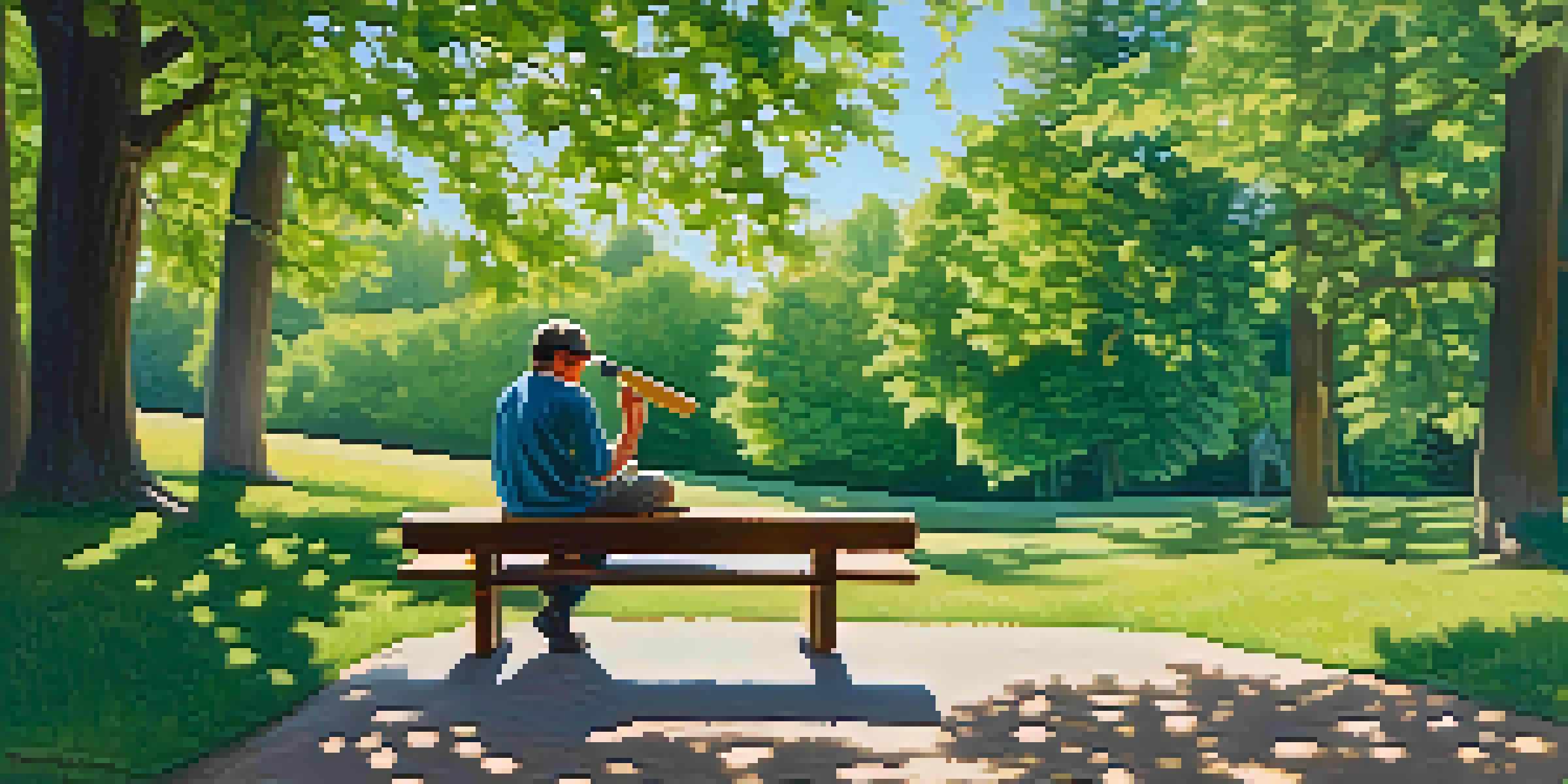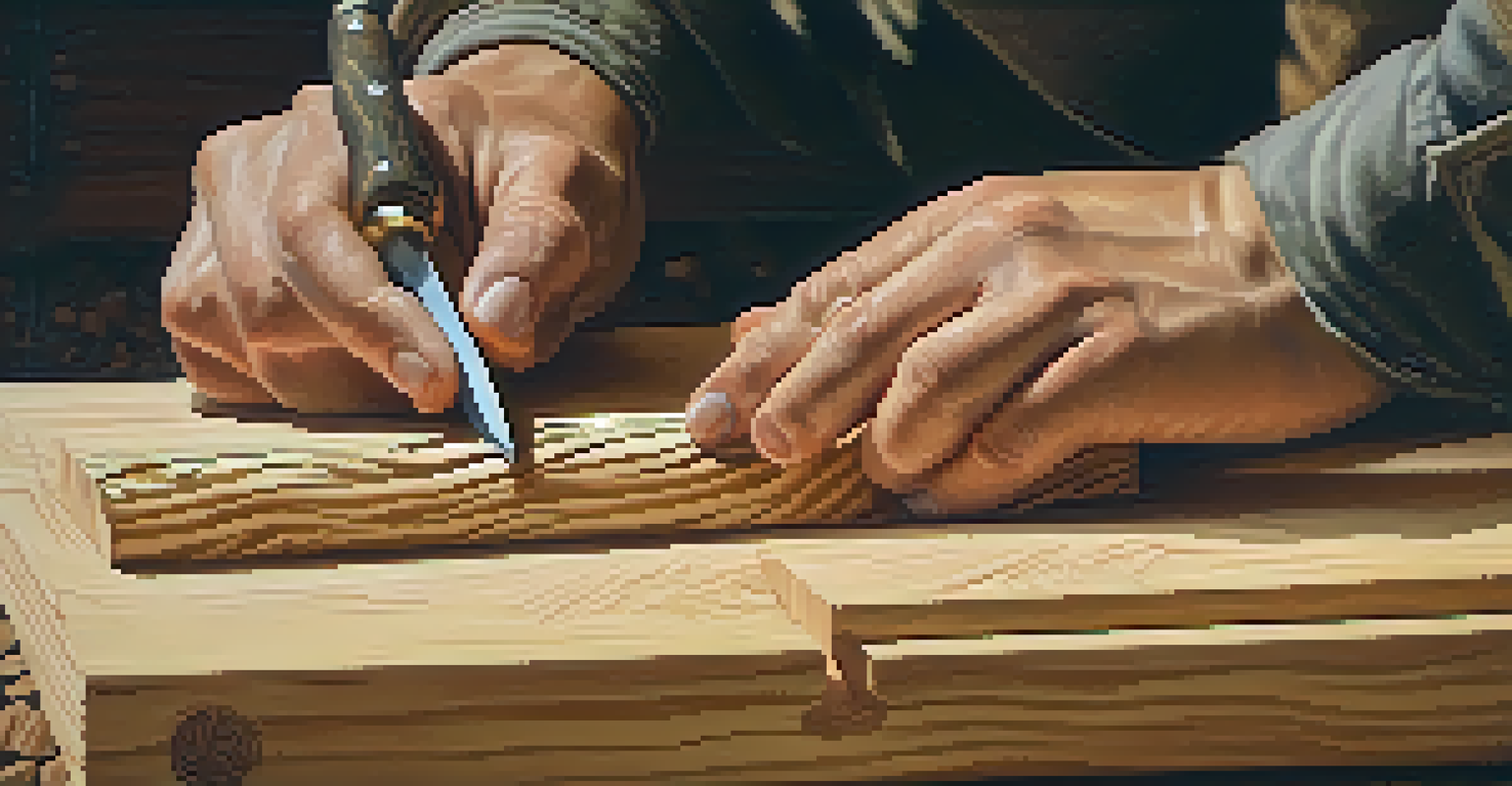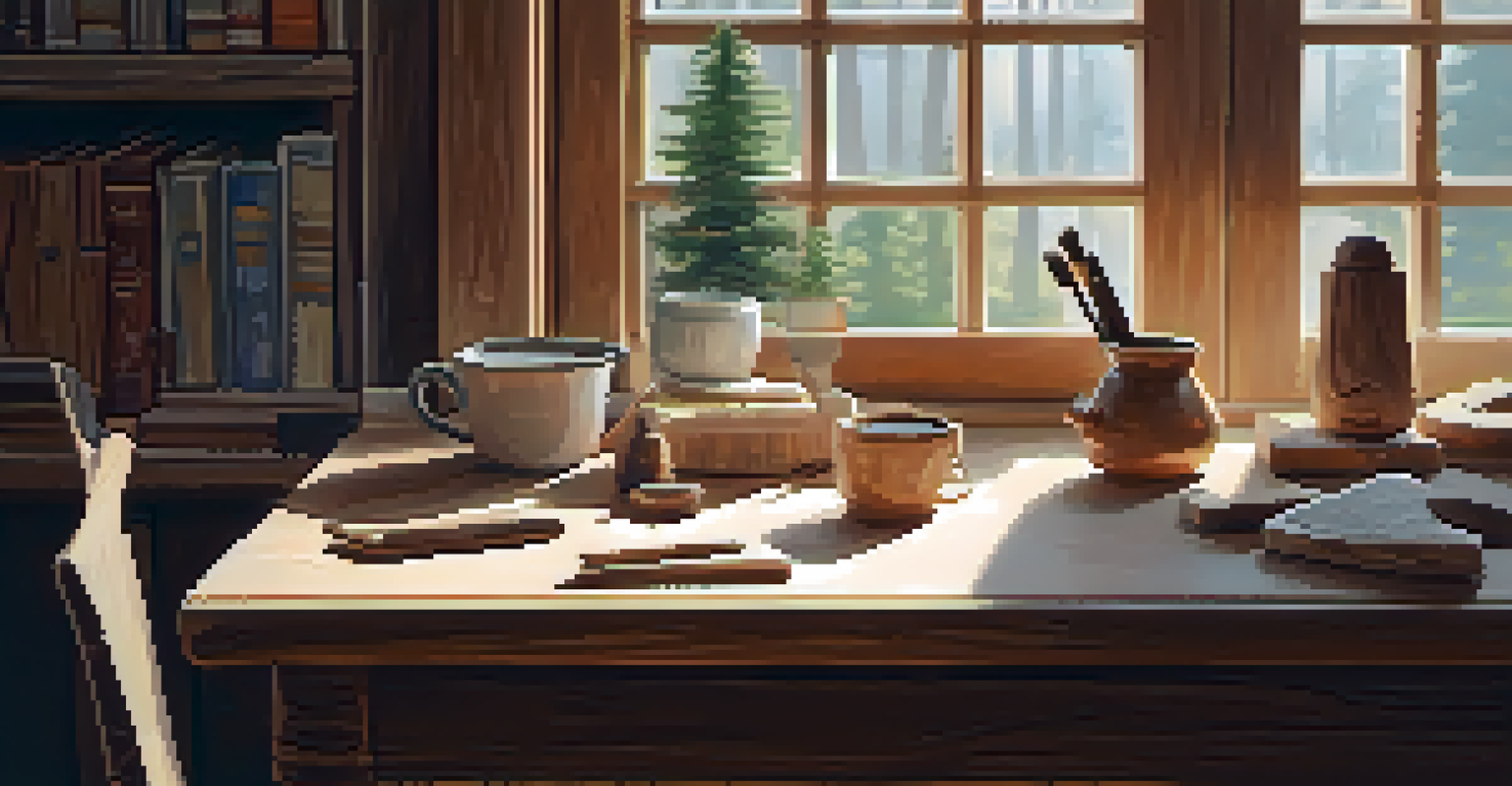Mindful Whittling: The Art of Carving for Mental Clarity

What is Mindful Whittling and Its Benefits?
Mindful whittling is a blend of traditional woodworking and mindfulness practices. At its core, it involves carving wood while being fully present in the moment. This practice can significantly enhance mental clarity and promote a sense of relaxation.
The process of creation is a journey, not a destination.
When you focus on the simple act of carving, you allow your mind to break free from everyday distractions. Each slice of the knife serves as a reminder to breathe and to appreciate the beauty of your surroundings. It’s a great way to reconnect with nature and with yourself.
Moreover, whittling can serve as a form of meditation, helping to reduce anxiety and stress. As you shape your piece of wood, you might find that your thoughts become clearer, making it easier to tackle problems with a fresh perspective.
The Tools You Need for Mindful Whittling
Getting started with whittling doesn’t require a lot of expensive tools; in fact, all you really need is a quality carving knife and a piece of wood. A simple knife, like a whittling or pocket knife, can be effective for beginners. As you progress, you might want to experiment with more specialized tools.

Choosing the right wood is just as important as having the right tools. Softwoods like basswood, butternut, or pine are excellent choices for beginners due to their ease of carving. These types of wood are forgiving and cut smoothly, allowing you to focus more on the process than on struggling with the material.
Mindful Whittling Enhances Clarity
This practice promotes mental clarity and relaxation by allowing individuals to focus on the present moment while carving.
Don’t forget about safety! A carving glove can protect your hand, and a sturdy work surface can help keep your focus on the task at hand. Establishing a safe and comfortable workspace is essential for both enjoyment and mindfulness.
Setting the Scene for Mindful Whittling
Creating the right environment is crucial for a mindful whittling experience. Find a quiet, comfortable spot where you can concentrate without interruptions. Whether it’s in your backyard, a park, or even a cozy corner in your home, the goal is to minimize distractions.
Mindfulness isn’t difficult. What’s difficult is remembering to be mindful.
Consider adding elements that enhance your experience, like natural lighting or calming background music. You might also want to bring along a thermos of tea or coffee to sip on as you carve. The act of preparing your space can itself be a meditative practice.
As you settle into your environment, take a moment to breathe deeply and let go of any tension. This transition into mindfulness will help you fully engage with the act of whittling, allowing you to enjoy each moment.
The Process: How to Start Whittling Mindfully
Begin by holding your carving knife comfortably and securely, knowing that the goal isn’t to create a masterpiece but to enjoy the process. Start with simple shapes, like a spoon or a small figure, as this allows you to build confidence in your skills. Remember, each cut is a step toward mental clarity.
As you carve, pay attention to the sensation of the knife against the wood and the sound of the shavings falling away. These sensory details help ground you in the moment, enhancing your mindfulness practice. If your mind wanders, gently guide it back to the rhythm of your carving.
Simple Tools for Whittling
You only need a quality carving knife and softwood to start your mindful whittling journey, making it accessible for beginners.
It's important to take breaks as needed. Listen to your body and your mind, and step away if you start to feel fatigued. This practice is about enjoyment, so don’t rush; allow the experience to unfold naturally.
Embracing Imperfection in Your Creations
One of the beautiful aspects of mindful whittling is embracing the imperfections in your work. Each piece you create will have its unique character, reflecting not only your skills but also your state of mind during the carving process. This acceptance fosters a sense of freedom and creativity.
Rather than striving for perfection, focus on the journey of creating. This mindset not only alleviates pressure but also enhances your enjoyment. Over time, you’ll likely find that your skills improve naturally as you engage more deeply with the craft.
Remember, it’s not about the finished product; it’s about the process and the moments of clarity you achieve along the way. Each carving is a personal reflection of your experience, and that’s what makes it truly special.
Mindful Whittling and Stress Relief
In our fast-paced world, finding ways to decompress is essential, and mindful whittling is a perfect avenue for stress relief. The repetitive motion of carving can be incredibly calming, helping to lower heart rates and promote a sense of peace. Many people find that this activity allows them to release pent-up stress and anxiety.
By focusing on the present moment, whittling encourages you to let go of worries about the past or future. As you engage with your piece of wood, you create a safe space for your thoughts to flow freely. This mental clarity can lead to insights that might have eluded you in the chaos of daily life.
Community Enriches the Experience
Joining whittling communities can provide inspiration, support, and a sense of belonging as you develop your skills.
Incorporating mindful whittling into your routine can offer a much-needed respite. Even just a short session can help restore balance and clarity, making it easier to navigate life's challenges.
The Community of Mindful Whittlers
As you delve deeper into the art of mindful whittling, you might discover a welcoming community of fellow enthusiasts. Joining online forums, local workshops, or social media groups can provide inspiration and encouragement as you hone your skills. Sharing your experiences fosters a sense of connection and belonging.
These communities often share tips, techniques, and even showcase their creations, inspiring others to dive into the craft. Engaging with others can also provide motivation and a fresh perspective on your own work. You might find new ideas or techniques that enrich your own practice.

Ultimately, whittling together can be a therapeutic experience in itself, allowing you to bond over shared interests. Whether in person or online, these connections can enhance your mindfulness journey and deepen your appreciation for the art of whittling.